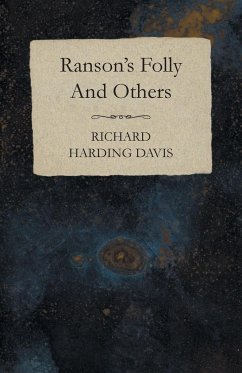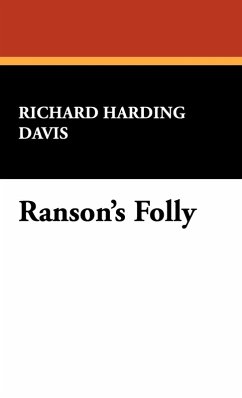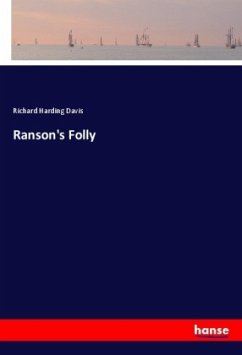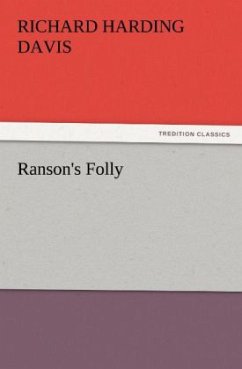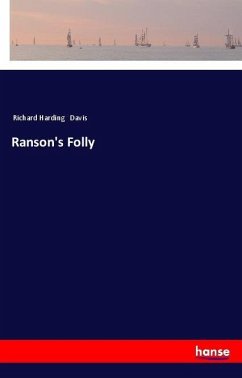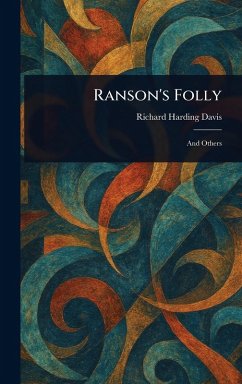
Ranson's Folly
Versandkostenfrei!
Versandfertig in 6-10 Tagen
10,70 €
inkl. MwSt.

PAYBACK Punkte
0 °P sammeln!
In "Ranson's Folly," Richard Harding Davis weaves a compelling narrative that explores the themes of valor, ambition, and the moral dilemmas faced by individuals in the tumultuous landscape of the American West. Through vivid prose and sharp dialogue, Davis immerses readers in a world where the individual is pitted against societal expectations and personal desires. The novel's literary style reflects the influences of realism and naturalism, presenting a gritty and authentic portrayal of frontier life that echoes the sentiments of the late 19th-century literary movements. Richard Harding Davi...
In "Ranson's Folly," Richard Harding Davis weaves a compelling narrative that explores the themes of valor, ambition, and the moral dilemmas faced by individuals in the tumultuous landscape of the American West. Through vivid prose and sharp dialogue, Davis immerses readers in a world where the individual is pitted against societal expectations and personal desires. The novel's literary style reflects the influences of realism and naturalism, presenting a gritty and authentic portrayal of frontier life that echoes the sentiments of the late 19th-century literary movements. Richard Harding Davis, an esteemed journalist and author, was known for his adventurous spirit and commitment to capturing the human experience in its myriad forms. His background in war correspondence during the tumultuous years of the Spanish-American War further informs the visceral emotions found within "Ranson's Folly." The complexities of the human condition, as seen through Davis's lens, often mirror hisown experiences and observations, enriching the narrative with depth and authenticity. This novel is highly recommended for readers seeking an engaging exploration of character and conflict set against a richly drawn historical backdrop. Davis's masterful storytelling and keen insights make "Ranson's Folly" a significant work that not only entertains but also encourages reflection on the nature of courage and responsibility.




